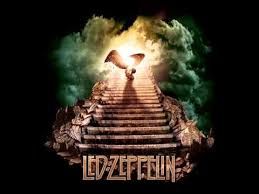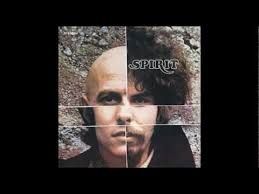
Central District of California Judge Gary Klausner ruled the founders of rock band Led Zeppelin – and more particularly, front men Jimmy Page and Robert Plant – must face a jury trial to determine whether the band's most famous song, "Stairway to Heaven," infringed a copyright belonging to the band Spirit.
In 2014, the trustee for the estate of Randy Wolfe – guitarist and songwriter for Spirit – sued Led Zeppelin, alleging "Stairway to Heaven" infringes on Spirit's song "Taurus." There are a variety of comparisons available, including this one:

"Taurus" was written four years before "Stairway," and the bands were on tour together and played the same venue three times during that four-year period in the late 1960s. But Jimmy Page testified that he never heard "Taurus" when working on "Stairway" (and, in fact, heard it for the first time after the lawsuit despite the record being part of his collection). Page and Plant both appear to be willing to maintain that there was no access.
But as any casual listener would have to acknowledge, there are similar notes and chord progressions. Interestingly, Led Zeppelin front men Jimmy Page and Robert Plant took the legal position that the "descending chromatic four-chord progression" of "Stairway," which as the court pointed out is "arguably the most recognizable and important" part of the song, was so common as to be not protectable. This was an odd tack because had Page and Plant won, they might have been unable to stop others from creating something similar. But Judge Klausner rejected that argument, holding that the similarities between the two songs "transcend this core structure." "For example, the descending bass line in both Taurus and Stairway to Heaven appears at the beginning of both songs, arguably the most recognizable and important segments." Klausner held that "[e]nough similar protectable expression is here that the issue of substantial similarity should [proceed to the jury]." Judge Klausner ruled that the Wolfe estate put forth sufficient evidence that "Stairway to Heaven" copied the constituent elements of "Taurus" to overcome a summary judgment motion and go to trial: "What remains is a subjective assessment of the 'concept and feel' of two works ... a task no more suitable for a judge than for a jury."

Judge Klausner also rejected Zeppelin's waiver and abandonment argument. "Stairway to Heaven" was 43 years old when the suit was brought. During that time, Wolfe never sued, nor did his mother as the executor of his estate when he died in 1997. The trustee took over the estate in 2006 but waited until 2014, when "Stairway" was remastered and rereleased – obviously to overcome the statute of limitations. In 1991, Wolfe gave an interview in which he acknowledged the similarities between the two songs but said, "I'll let [Zeppelin] have the beginning of 'Taurus' for their song without a lawsuit." Zeppelin argued Wolfe's public statement demonstrated abandonment of his rights. But the Wolfe trustee proffered evidence that Wolfe did intend to sue Zeppelin, or at the very least, acted inconsistently with an intent to abandon his rights. For example, Spirit's bass player testified that in the late '80s Wolfe was very upset about the alleged theft and wanted to sue, but was intimidated. Also, a Chicago entertainment attorney testified that Wolfe consulted with her about the potential lawsuit in the late '90s. Judge Klausner concluded that this and other evidence raises triable issues of fact.
Page and Plant also tried to invoke the equitable doctrine of laches. The court discredited this argument as running afoul of the Supreme Court's 2014 decision in Petrella, which found that laches was unavailable in copyright cases when the action is brought within the three-year statute of limitations. Judge Klausner reiterated that the plaintiff did so as the defendants released a new remastered version of "Stairway" in 2014.
Jury trial is scheduled for May 10. It will focus on the issues of access and substantial similarity, as well as ownership of "Taurus." It will be interesting to see, for the legal and entertainment communities alike, whether this case will follow in the footsteps of "Blurred Lines."
The content of this article is intended to provide a general guide to the subject matter. Specialist advice should be sought about your specific circumstances.

